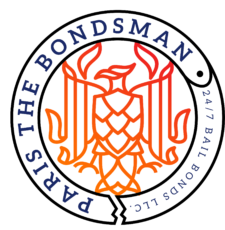FAQ
call paris the bondsman
Frequently Asked Questions
Bail is a constitutional right by which the United States criminal justice system permits the release of a defendant from custody while ensuring his appearance at all required court proceedings. I’m here to help you through the process. Please call me at (860) 209 – 9988 with any questions.
Judges make the decisions for bail based on many factors, including, but not limited to, prior criminal history, risk of flight, seriousness of the charges and ties to the community.
Something of value placed with your bail bonds agent to ensure the defendant’s appearance in court. Should the defendant fail to appear when notified and cannot be apprehended and returned to the custody of the court, the collateral posted could be used to cover the amount of the bail. An example of collateral could include a co-signer(s), signature, cash, land, buildings, vehicles, etc. The most common form of collateral is signatures of suitable co-signers.
The bail bonds agent will require that a third party co-sign or post collateral for the purpose of indemnifying the bond and providing additional incentives for the defendant to appear in court. Depending on the amount of the bond additional cosigners may be used.
The third party cosigner will often be a family member, which results in the active participation of the family in ensuring that the defendant shows up to court.
The court issues a rearrest warrant for the defendant’s arrest and the defendant is considered a fugitive. A surety bail agent has the authority to take the defendant into custody. A failure to appear increases the indemnitors risk of forfeiting collateral and incurring additional expenses.
An arraignment is the first appearance of the accused before a judge to address the charges against the accused, find probable cause, and to set, review, or deny bail. If the judge sets bail, the accused may post bail; usually cash or through a bail bond agent. Posting the bond through a licensed CT bail bonds agent will only cost you a percentage of the total bond.
Depending on the charges, you will need the fee, a cosigner, and possibly some form of collateral.
The fee for a bail bond in the State of Connecticut is 10% on the first $5,000 and 7% on every dollar over $5,000. For example a $5,000 bond would cost $500, while a $10,000 bond would cost $850. Feel free to call Paris for a free bond consultation.
No, the fee is nonrefundable and fully earned by us once your friend or relative is released on bond.
Mail us a letter with your original signature in addition to the “letter of disposition” from the Court Clerk. The letter should indicate the name of the defendant, and the name of the person who deposited the collateral. Collateral returns are processed the 1st of each month.
The following is a list of information that will help me do the bond as quickly as possible. When you call us you should try to have as much of this information as possible. Don’t worry if you don’t or can’t get all the information; I can get it for you.
- Name of person in a correctional institution
- Birth date/Inmate Number of person (in jail)
- Social security number of defendant if available
- Address of defendant if available
We can do any size bond. Feel free to call me for a free consultation regarding large bonds.
No amount is too small.
You are liable for the full amount of the bond plus expenses if your friend or relative does not go to court, however a failure to appear in court does not necessarily mean you’ll have to pay the full amount of the bond.
The Department of Insurance is responsible for the regulation of surety bail bondsmen in Connecticut.
Our phones are staffed 24 hours a day.
Our phones are staffed 24 hours a day. We can and will do a bond anytime of the day or night including holidays.
We can and will do a bond in any part of the State of Connecticut.

